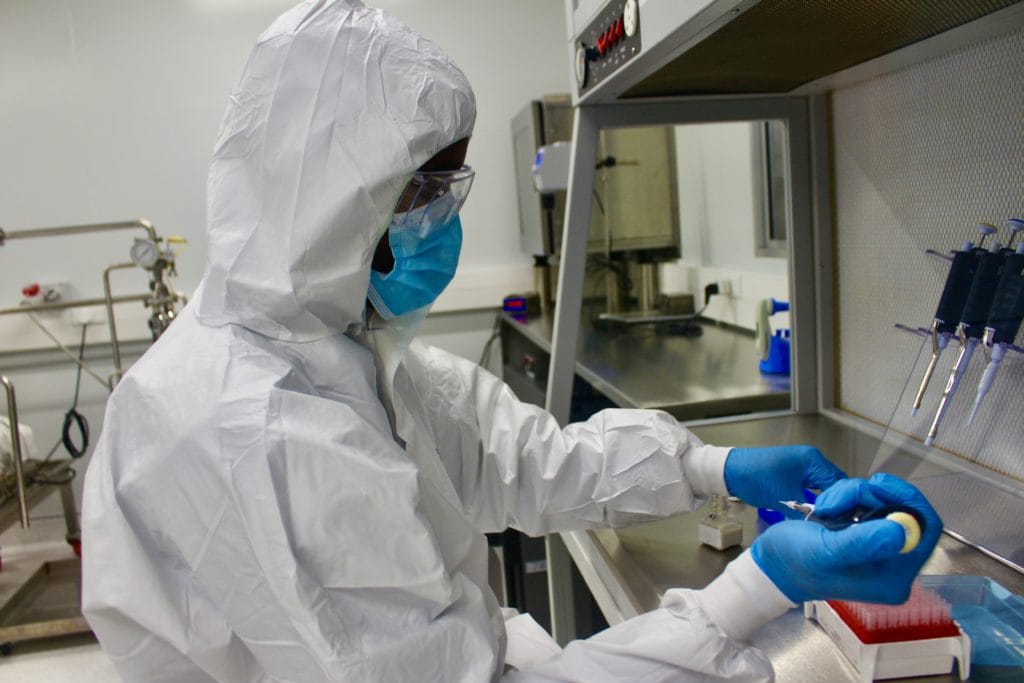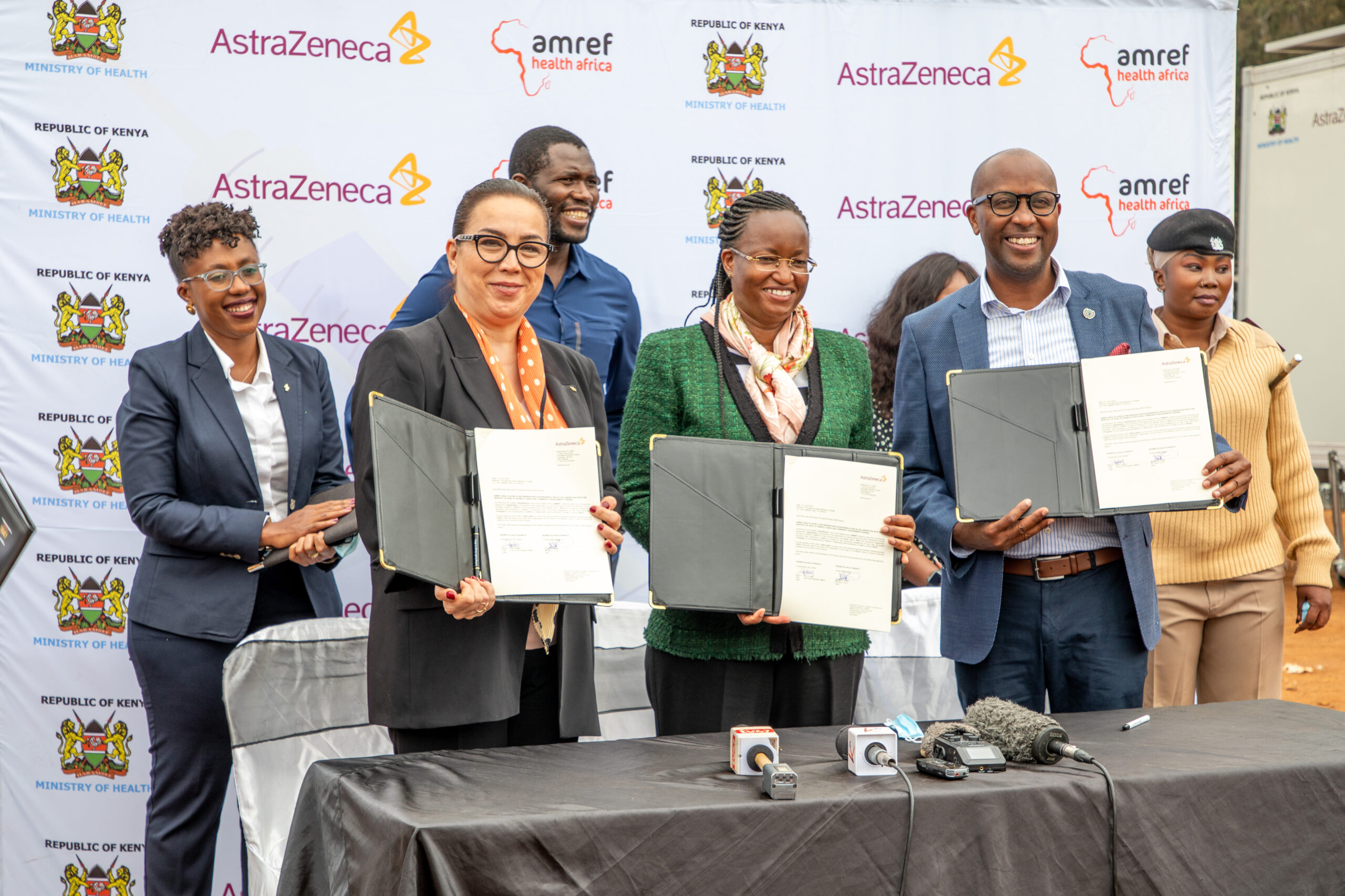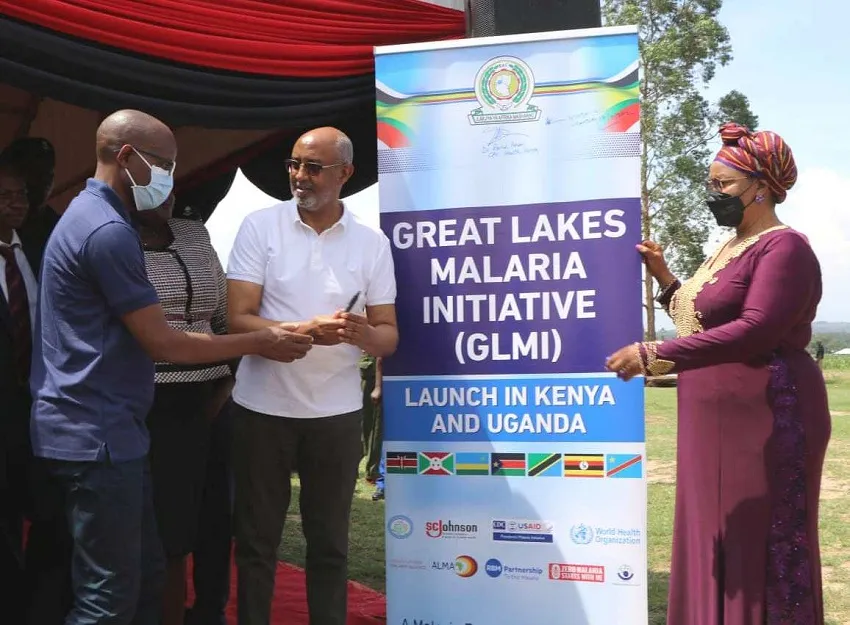Children as Agents of Change in the Fight against Malaria
Wednesday, 24 April, 2019

The continued spread of malaria has been attributed to, among other issues, information gaps among local communities, and specifically information on its cause and prevention. To equip communities with the right information, Amref Health Africa in Kenya in partnership with the National Malaria Control Program developed a school health program leveraging on the potential of children as agents of change within their families and the community without interfering with their academics. By sharing information on malaria taught in school with their families, questioning existing practices at home, and influencing the behaviour of siblings in their care, children present the potential to change their own behaviour and that of others.
Implemented in eight lake endemic counties (Bungoma, Kakamega, Vihiga, Busia, Homabay, Siaya, Migori and Kisumu), the intervention brought to the fore the low risk perception built on the belief that one can only get malaria during the rainy and dry seasons, and that only pregnant women and children under the age of five years are at risk of malaria.
Using school pupils as change agents ensured that malaria prevention and control messages were passed across households, promoting dialogue with household members around net use while incorporating messages on proper hygiene.
Pastor John Opiyo and his wife Monica are residents of Nyamanga, Village in Migori County. They are beneficiaries of the school health program through their son Don Tucker Nyagoye, a pupil at Nyamanga Primary School. Don Tucker has taught his parents to always keep the environment around their home clean and to clear overgrown vegetation, remove plastic or anything that might collect water during rainy seasons, clear bushes and drain stagnant water, always sleep under a treated mosquito net and tuck the nets properly were among others ways of malaria prevention and control. Pastor John notes that the disease had troubled the community members for a long time and in the process, they ended up spending heavily on hospital bills for treatment of the disease. They would become weak and unable to rightfully perform their day-to-day duties, while sick children missed school ultimately affecting their studies negatively.
Following the introduction of the school health program, the community is now more informed on best health practices.
“The program has been of great help to us since we are now fully equipped with the right information on how to control spread of the disease by observing general hygiene standards and ensuring we sleep under treated mosquito nets,” explains Pastor John. He points out that when the program kicked off, the community members were sceptical about it especially as relates to sleeping under mosquito nets which they complained made them uncomfortable at night.
With time, they have embraced the program that places emphasis on malaria prevention. Children no longer miss school because they are now healthy and the same applies to their parents who now are healthy and able to perform various duties as expected. As Pastor John notes, the community is now versed with the right information about malaria unlike before when majority held various myths about the causes and cure for malaria.
“As a community, we are grateful to Amref for this noble project and we look forward to have it run for a longer period as well as spread to other communities in our region where malaria remains a big threat to people’s lives,” said Pastor John.







